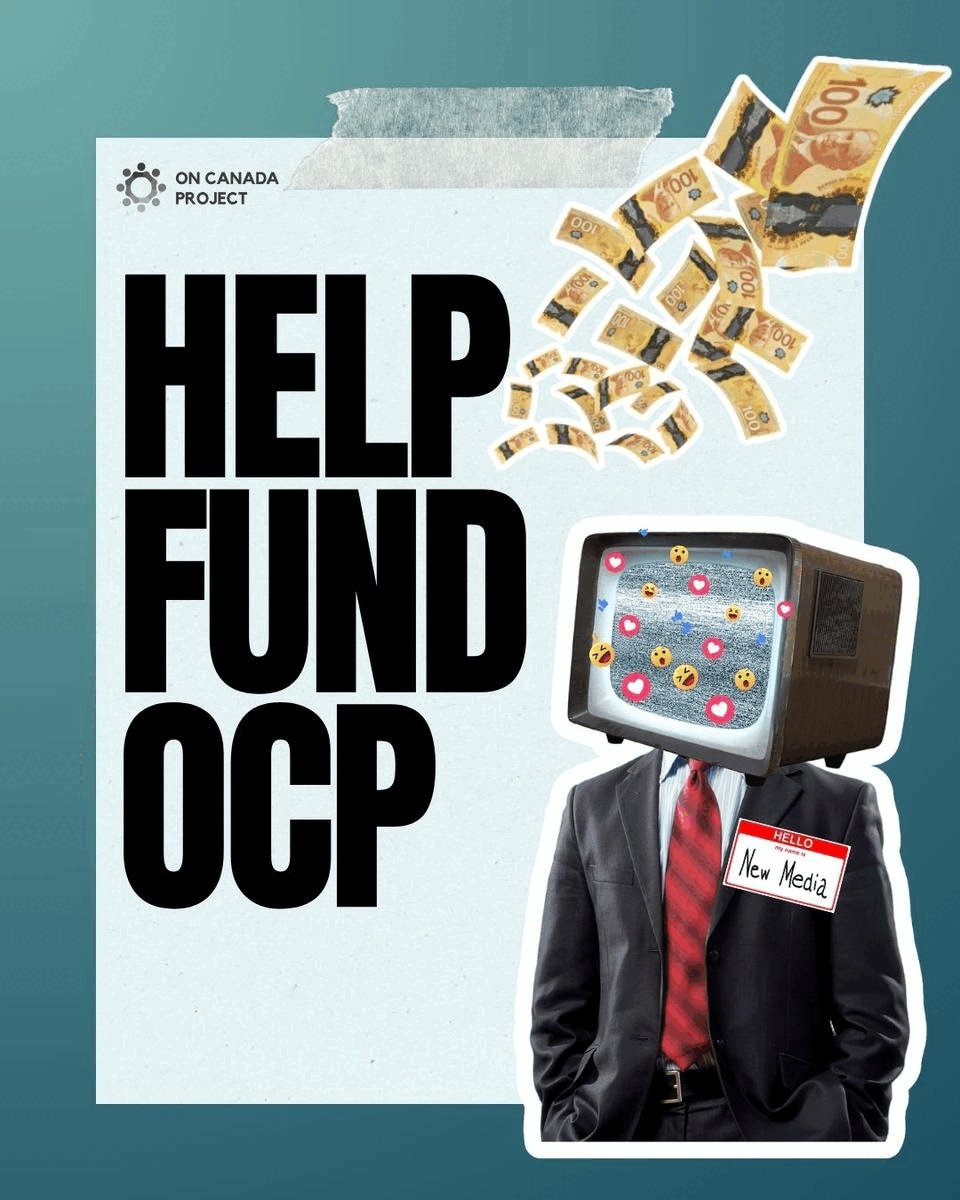The Consequences of Speaking Truth to Power
Last month, On Canada Project spoke truth to power, and the fallout was severe: we were booted from panels, stripped of moderator roles at conferences, lost significant client contracts, and I, the founder, was doxxed and threatened.
Hi folks, I’m Samanta, I’m the founder and editor-in-chief of On Canada Project Inc. I’m a 90s millennial and the eldest daughter of two Hindu Eelam-Tamil refugees. I was born and raised in Canada.
Over the past 36 days, or since October 7, both OCP Inc. and myself have faced many personal and professional consequences for saying the unpopular thing, even though that unpopular thing is grounded in human rights.
Since launching in mid-2020, the On Canada Project has created over 1000 accessible, human rights-centered, and evidence-informed explainers on culture, politics and news.
We've covered every human rights issue we can because we know that injustice anywhere is a threat to justice everywhere. Our media has shared information on Indigenous justice, Black liberation, Trans rights, Queer rights, Migrant rights, women's rights, reproductive rights, workers rights, systemic inequities, COVID-19, and more.
Like most people, I have been…
Watching a genocide happen live
Watching our systems work as designed
Watching our politicians - many of whom I voted for - and our media gaslight us and spread disinformation about what is going on in Israel and Gaza, and being complicit in another genocide.
Watching our politicians - from all the major parties- fail to show up domestically for both the Jewish and the Muslim communities. Meaning they’ve validated the experiences of Jewish Canadians during this time while intentionally excluding Muslim Canadians and Palestinian Canadians.
The blatant white supremacy is breaking something in my soul - because I’ve never been so aware of how quickly Canada - the country I was born in, the only one I’ve ever called home- would other me, call to deport me, deem me a terrorist, as I was during this month. Because if Canada and its politicians can turn so quickly on Muslim Canadians and Palestinian-Canadians, then I’m sure it would have no problem doing that to me (and other BIPOC).
Personally, I was doxxed. As a result, I’ve been nervous about being out in public, which has led to depression, fear, and self-isolation.
I received several incredibly threatening emails about me personally. I have had to read some deeply disturbing and horrific descriptions of what should be done to me. As a young woman of colour, I’ve experienced an exponential increase in racist and sexist harassment.
As a result, my physical and mental health has been deteriorating.
Professionally, OCP was removed from panels and moderating opportunities that would have increased our professional presence. In one case, conference funders threatened to pull funding from the entire event if OCP’s leadership was part of the program.
Our human rights stance on this issue has made us “too political” to host and facilitate sessions that, ironically, were meant to speak on bridging information gaps with justice, empathy and compassion.
We also had two ready-to-sign client projects drop out of nowhere the same week we were dropped from the panels (October 7- 14), which has put our business into further financial scarcity.
We had been planning a community fundraiser to scale OCP’s vision; with our planned pipeline of client projects, we would have had a runway until March 2024, but in the fallout of the last month, OCP’s runway has shortened to the end of this year.
Given the limited financial runway of OCP, we knew that the ‘Harvard Business Review’ decision would be to keep quiet and secure those business deals so we could exist as an organization in 2024.
But this wasn’t aligned with our values nor is it fair to the relationship we’ve built with you, our community.
Of course, I knew speaking up would be risky (as I’ve experienced blowback every time OCP has spoken up on this issue), and admittedly I was nervous about posting, but ultimately what I kept coming back to was how do I live with myself if I — someone whose people have experienced colonization and genocide — ignored someone else’s plight and prioritized “business” over human rights?
So today, as I sit with the personal attacks and threats, and as Gina and I sit with the enormous financial scarcity from losing out on those business deals and opportunities, I speak for us both when I say, if we could do it over again, we wouldn’t change a damn thing about what we said or when we said it.
#FreePalestine
Because if OCP ends because we took a principled human rights stance - so be it. I refuse to let OCP or myself be scared into silence or bullied into the status quo. I’m proud we were among the first Canadian orgs to speak up with an anti-oppression and human rights lens.
This doesn’t take away from the immense financial scarcity and fear that Gina and I are living with or the fact that we’ll likely have to take on second jobs to make ends meet. If we do, our media arm will have to be put on pause for the foreseeable future (as it isn’t revenue-generating) unless we can make our fundraising goals to sustain and scale OCP.
This past month our media reached 1 million unique viewers, with over 7 million impressions.
We are a truly one-of-a-kind, free, accessible community resource grounded in an unapologetically intersectional, anti-oppression lens and human rights-centred perspective.
If we can manage to do all of this with a minimal budget, imagine what we could accomplish if we meet our community fundraising goal of $300 000 to scale OCP.




